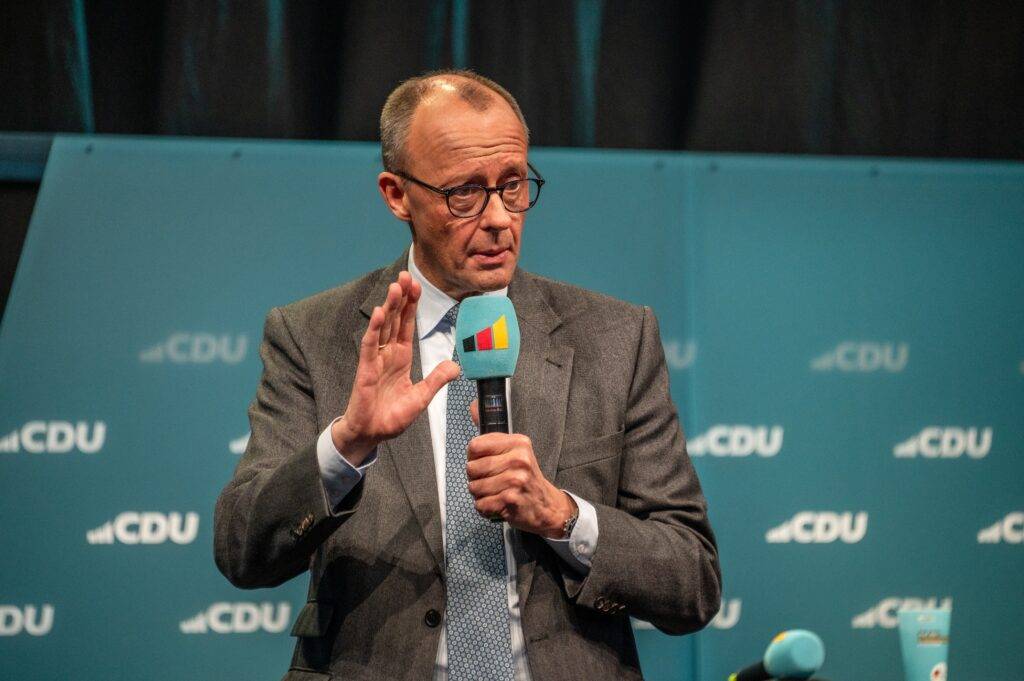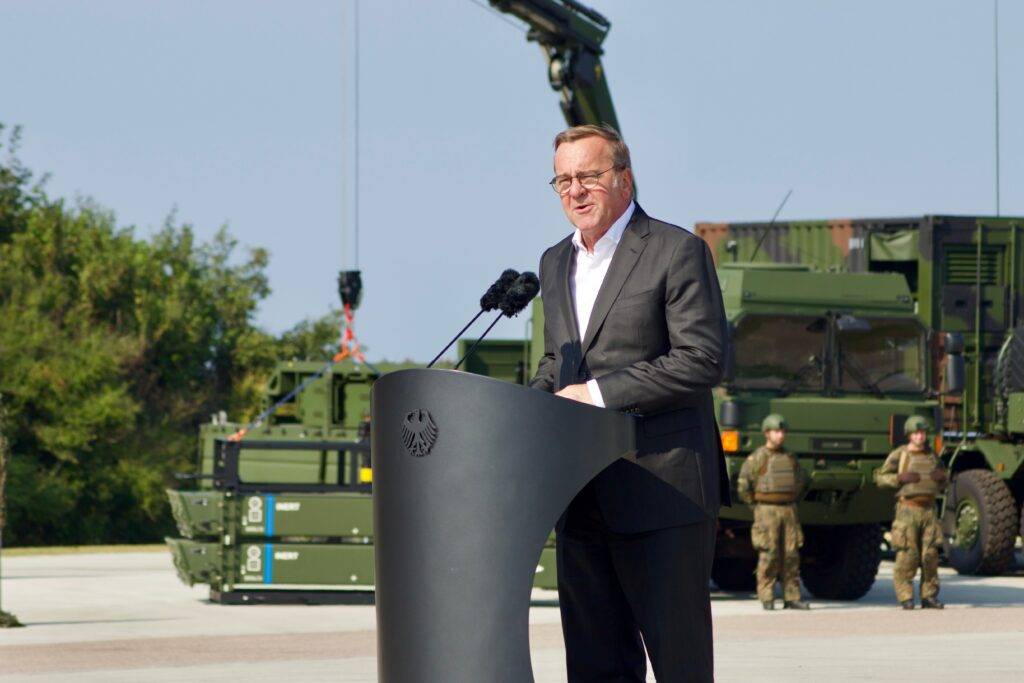Germany has taken a firm stance on backing Ukraine. Speaking at the Munich Security Conference, Defence Minister Boris Pistorius reaffirmed Germany’s commitment to strengthening Ukraine’s defences. He also laid out plans to boost European technological cooperation, particularly in space, artificial intelligence, and quantum computing. The Christian Democrats, expected to win the election, back strong support for Ukraine.
Defence MinisterPistorius criticized recent U.S. policy directions, particularly President Donald Trump’s suggestion to exclude Ukraine from NATO membership and to negotiate territorial concessions with Russia. He described these preemptive concessions as “clumsy” and a “mistake,” advocating instead for these critical issues to be deliberated at the negotiation table. Pistorius emphasized the necessity of European involvement in any peace discussions, asserting that Europe’s exclusion would undermine the legitimacy and sustainability of any resulting agreements.
Strategic Investments in Advanced Technologies
Beyond immediate military support, Germany is channeling significant resources into advanced technological sectors:
- Space Exploration: Germany aims to enhance its capabilities in satellite technology and extraterrestrial research, recognizing the strategic importance of space in modern defence and communication systems.
- Artificial Intelligence: The German government is investing in AI research and development, focusing on applications that can improve both civilian and military systems.
- Quantum Computing: Acknowledging the transformative potential of quantum technologies, Germany is fostering initiatives to advance quantum computing, which promises to revolutionize data processing and encryption.
These initiatives are designed to reduce dependency on non-European technologies and to position Europe as a formidable entity in the global technological arena.
Transatlantic Relations: A Divergence in Perspectives
The conference also highlighted a growing rift between U.S. and European leaders. U.S. Vice President JD Vance delivered a contentious speech, asserting that Europe’s principal threats are internal, stemming from perceived erosions of free speech and democratic values, rather than external actors like Russia or China. Vance criticized European policies on immigration and freedom of expression, suggesting that these issues pose greater risks to European stability.
European leaders responded robustly. Pistorius rebuffed Vance’s comparisons of European democracies to authoritarian regimes, labeling such remarks as “not acceptable.” Similarly, EU foreign policy chief Kaja Kallas expressed that Vance’s comments seemed intended to provoke discord between the U.S. and its European allies.
A Unified European Defence Initiative
In light of these developments, Ukrainian President Volodymyr Zelenskyy called for the establishment of a unified European army to counter Russian aggression and to reduce reliance on external support. He stressed that Europe’s security architecture must be robust and self-sufficient to deter future threats. This sentiment was echoed by NATO officials, who urged European nations to escalate their defence production and to collaborate more closely on security matters.
The Munich Security Conference of 2025 may well be remembered as a turning point where Europe began to assert a more independent and unified approach to its defence and technological future.
The Ukrainian Conflict May Influence the German Elections

As Germany approaches its federal election on February 23, 2025, the stances of various political parties on the Ukrainian conflict may significantly influence the election outcomes.
- CDU/CSU: Led by Friedrich Merz, the Christian Democrats advocate for robust support of Ukraine, including conditional backing for supplying longer-range Taurus missiles. They propose increasing defense spending to at least 2% of GDP and reinstating military conscription.
- SPD: Under Chancellor Olaf Scholz, the Social Democrats emphasize cautious support for Ukraine, opposing the delivery of Taurus missiles to prevent escalation. They focus on diplomatic efforts and propose modernizing the armed forces while maintaining defense spending at a minimum of 2% of GDP.
- Bündnis 90/Die Grünen (The Greens): The Greens strongly support Ukraine, advocating for the provision of Taurus missiles. They emphasize the importance of a European security framework and propose increasing defense spending beyond the 2% GDP benchmark.
- FDP (Free Democratic Party): The FDP supports immediate delivery of Taurus missiles to Ukraine and upholding a defense budget of at least 2% of GDP. They advocate for a professional volunteer military and enhancing Germany’s conventional armed forces.
- AfD (Alternative für Deutschland): The AfD calls for an immediate halt to all arms deliveries to Ukraine, lifting sanctions on Russia, and maintaining Ukraine as a neutral state outside of the EU and NATO. They prioritize national sovereignty and propose reinstating compulsory military service.
- BSW (Bündnis Sahra Wagenknecht): This newly formed alliance condemns the war in Ukraine but advocates for a negotiated settlement, opposing further military aid. They reject meeting NATO’s 2% defense spending target and propose creating a European security structure that includes Russia.
Recent polls indicate the CDU/CSU leading with approximately 30% support, followed by the AfD at around 20%. The SPD and Greens are each polling near 15%, while the FDP, Die Linke, and BSW hover around the 5% threshold required for parliamentary representation.
Read More:
- Politico: German defense minister blasts Trump’s ‘clumsy’ Ukraine negotiating play
- QBN News: Quantum Technologies and the 2025 German Elections: An Overview of Party Positions
- EU Debates: Germany’s Pistorius SLAMS US JD Vance’s Controversial Remarks at Munich Security Conference 2025
- Reuters: In Munich, Vance accuses European politicians of censoring free speech
- The Guardian: Zelenskyy demands ‘real security guarantees’ before peace talks; Vance accused of ‘trying to pick a fight’ with EU – as it happened
- The Times: Trump team to start Russia-Ukraine peace talks in Saudi Arabia — as it happened
https://www.thetimes.com/world/europe/article/russia-ukraine-war-munich-security-conference-latest-news-ht9rn9s0b
The Guardian: JD Vance’s Munich speech laid bare the collapse of the transatlantic alliance
https://www.theguardian.com/world/2025/feb/15/jd-vance-munich-speech-laid-bare-collapse-transatlantic-alliance-us-europe - Financial Times: JD Vance hits out at Europe’s ‘threat from within’
- The Sunday Times: Trump team to start Russia-Ukraine peace talks in Saudi Arabia — as it happened
- Amaravati Today: Pistorius Speaks at Munich Security Conference 2025 | Europe Security, NATO, Russia-Ukraine, Syria
- Reuters: German parties’ election pledges on defence
https://www.reuters.com/world/europe/german-parties-election-pledges-defence-2025-02-13/ - Reuters: The latest polls ahead of Germany’s snap election

